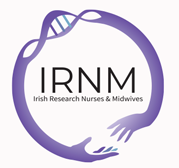Agenda
09:00 am
Registration
Refreshments, Poster Viewing and Meeting Conference Sponsors
10:00 am
Chair’s Welcome
Simone Walsh, Chair and Programme Manager
Session One 10.10am
Developing and Building Ireland’s Research Nurse and Midwife Workforce
Chaired by Dr Mairéad O’Driscoll, CEO Health Research Board
10:15 am
Student Placements in Clinical Research
Naomi Hickey, UKCRF Deputy Lead (Workforce Development) and, Education and Training Lead at Glasgow Clinical Research Facility, UK
10.35 am
Research Nurse and Midwife Education - Evidence Review Board Recommendation 24 & 25 Implementation Project Group
Simone Walsh, IRNM Chair and Programme Manager
10:45 am
TBA
Professor Martina Hennessey, Director, HRB-Wellcome CRF St. James Hospital
11.05 am
Opportunities for Success
Dr Robert O’Connor, CEO, National Clinical Trial Office
11:25 am
Questions and Answers
11:35 am
COFFEE BREAK
Poster Viewing and Meeting Conference Sponsors
Session Two 12.00 pm
Building Research Capacity in Ireland: The Role of the Research Nurse and Midwife.
Chaired by Professor Zena Moore, Professor of Nursing and Head of the School of Nursing and Midwifery;
Director, SWaT Research Centre, RCSI University of Medicine and Health Science
12:05 pm
Phase 1 Clinical Trials - A how to guide
Derval Reidy, Una Gibbons, Ashitha Bhaskaran
Presenter: Derval Reidy, Operations Manager/Assistant Director of Nursing, Wellcome HRB Clinical Research Facility
Background: The number of Phase 1 studies opening in Ireland is gradually increasing. By their nature, Phase 1 clinical trials can be highly complex projects to administer and the purpose of this oral presentation is to give an overview of the types of clinical trials conducted by the Wellcome HRB Clinical Research Facility, the challenges in their set up, learnings from our pre-approval HPRA inspection, staff management in terms of overnight clinical trials and our pipeline.
Methods: This presentation will cover the requirements for a multi-disciplinary team approach, training needs of staff, staff continuity and working across sites.”
12:25 pm
THE-DIET: Facilitators' experiences of delivering a tailored health education resource to people with mild/moderate intellectual disability
Dr. Anne-Marie Martin, School of Nursing and Midwifery, University College Cork, Ms. Anna Broderick, COPE Foundation, Dr. Maria Caples, School of Nursing and Midwifery, University College Cork, Dr. Caroline Dalton-O’Connor, School of Nursing and Midwifery, University College Cork, Ms. Caroline Egan, School of Nursing and Midwifery, University College Cork, Dr. João Costa, School of Education, University College Cork , Mr. Seffie O’Donnell, School of Nursing and Midwifery, University College Cork , Ms. Lucia O’Neill, COPE Foundation, Ms. Sandra Twomey, COPE Foundation, Mr. Joe McCarthy, COPE Foundation, Ms. Sile Divane, COPE Foundation
Presenter: Seffie O’Donnell, Research Assistant, University College Cork, School of Nursing and Midwifery.
Background: People with intellectual disability and support staff have highlighted that the lack of age-appropriate, accessible health information impedes people with intellectual disabilities from gaining the knowledge they need to make lifestyle decisions. Using a collaborative PPI approach with people with intellectual disability, we co-designed a resource intertwining educational and personal development elements to address this gap. This IRC-funded pilot study explored the usability/feasibility of one component of this resource from the facilitators’ perspective. The objectives were to: Explore facilitators’ experiences of delivering the resource to people with mild/moderate intellectual disability, Identify facilitators’ experiences regarding the resource usability and identify modifications/supports required to support national rollout of the resource.
Methods: Eleven disability workers were recruited from the community hubs of a large intellectual disability service provider. They participated in pre and post focus group interviews, completed Laugwitz et al (2008) User Experience Questionnaire (UEQ) (adapted) and a collective journal of module delivery. Qualitative data were analysed thematically while descriptive statistics were used to analyse the quantitative data.
Results: A highly favourable user experience was identified from the high UEQ mean scores as were areas for enhancement. Qualitative data analysis (focus groups and facilitator journals) found the resource’s visual and tactile learning aids, and interactive, practical activities successfully engaged learners. Resources were generally accessible and utilised well in each session.
Conclusion: Development of age appropriate, accessible resources is necessary for inclusive health promotion. This project demonstrates the power of PPI collaborators, practice and research working together to create inclusive health resources.
12:45 pm
The Role of the Research Nurse in Advancing Breastfeeding Practices and Research: Insights from the PEEB Project
PEEB Research Team: Prof Patricia Leahy-Warren, Ms. Sandra O’Connor, Dr Helen Mulcahy, Dr Elaine Lehane, Dr Catherine Buckley, Ms. Liz Cogan, Dr Margaret Murphy, Dr Rhona O’ Connell, Dr Elizabeth Heffernan, Ms. Mary O’Connor, Dr Elizabeth McCarthy, Dr Michelle O’Driscoll.
Presenter: Liz Cogan, PEEB Research Team, Agency Nurse – University Hospital Kerry Maternity Services
Background: The Practice Enhancement for Exclusive Breastfeeding (PEEB) project aimed to improve breastfeeding practices across a hospital, primary care and community setting in southern Ireland. The project engaged women, their partners, clinical and support staff, and conducted an environmental analysis to address gaps in breastfeeding support across healthcare settings.
Methods: As a research nurse on the project, I organized and facilitated Work-Based Learning Groups (WBLGs), where staff and mothers collaboratively explored ways to enhance breastfeeding practices. Nine WBLG meetings were held, providing a platform for participants to engage with the research and contribute their insights. Balancing academic rigor with participant advocacy was key to ensuring their active participation. Several suggestions from these meetings were implemented, leading to improved care and breastfeeding support.
The project also involved recruiting 124 women during their booking appointments at approximately 12 weeks’ gestation, with the intention to breastfeed. Participants were followed through four contact points from recruitment to three months postpartum, yielding valuable data. A final dataset was collected from 65 women and 20 partners. By maintaining regular contact, even with those who did not complete all forms, the project adapted to participants’ needs and ensured comprehensive data collection.
Conclusion: The ability to adapt and actively listen to participants fostered meaningful engagement, enabling adjustments to data collection processes that increased the study’s reach. This initiative underscores the critical role of research nurses in enhancing participant involvement and strengthening clinical research capacity.
1:05 pm
The Top 10 research priorities for the management of Chronic Conditions – A James Lind Alliance PSP
Ms Laura O’Connor, Dr Sarah Delaney, Ms Michelle Hanlon, Dr Peter Hayes, Dr Caroline McCarthy, Prof Brian McGuire, Mr Denis Mockler, Dr Patrick Murphy, Ms Louise O’Grady, Ms Maryrose Tarpey, Prof Andrew W Murphy and Prof Susan M Smith
Presenter: Laura O’Connor, Researcher: HRB Primary Care Clinical Trials Network, University of Galway
Background: Chronic conditions are extremely common, with the total number of people in Ireland affected by the top 4 chronic conditions being approximately 1 million. These numbers will most likely increase in the near future due to Ireland’s aging population. This means that there is major concern about the management of chronic diseases and the pressure that they cause for the healthcare system in Ireland. The aim of this project was to bring together patients, carers, and healthcare professionals to identify and rank their unanswered questions about the management of chronic diseases.
Methods: The initial survey was set to collect potential research questions about the management of chronic diseases and was shared from March to May 2023. The submissions were sorted, and the existing evidence was checked, resulting in a list of 30 unanswered questions. The interim survey was shared in late 2023, and the final workshop to generate the top 10 research priorities took place in January 2024.
Results: On the first survey, 185 people responded generating 350 individual statements. 73 of the respondents had a chronic disease and 72 of the respondents were primary healthcare professionals.
Conclusion: The JLA Priority Setting Partnership brings together a diverse community of stakeholders, generating a wide variety of research questions. The resulting top ten research priorities can strengthen primary care research in Ireland.
1:25 pm
Questions and Answers
1:35 pm
Lunch Break
Poster Viewing and Meeting Conference Sponsors
Session Three 2.15pm
Navigating the Clinical Trial Information System.
Chaired by: To be Announced
2:20 pm
Clinical Trials in Ireland: Application, Review and EU Landscape
Dr Jane Bryant, Project Officer, National Office for Research Ethics
2:35 pm
CTIS: The CRO Perspective
Claire Dickson, Associate Director of Clinical Trial Regulatory Management at IQVIA
2:50 pm
Questions and Answers
Session Four 3pm
Uncovering the Hidden Needs of People Living with a Rare Disease when Recruited to a Research Study.
Facilitated By Dr Avril Keenan, Chief Executive Officer, Health Research Charities Ireland
3:05 pm
Rare Diseases
Public Patient Involvement Discussion Panel
Assoc. Professor Suja Somanadhan, Dr Arit Awan, Ms Shirley Bracken, Patient Advocate (TBA)
3:30 pm
Questions and Answers
Session Five 3.40 pm
Meeting the Needs of Research Nurses and Midwives in Ireland.
Simone Walsh, IRNM Chair and Programme Manager
3.50 pm
IRNM Programme Manager Update
HRB Project Update, National Engagement with Research Nurses and Midwives, National Clinical Trials Oversight Group
4.10 pm
Earning CPD Points - The Nurses Act 2011
4:30 pm
Prize Giving and Close
Chairs Address

Simone Walsh
Chair
Live on Thursday 28th November 2024
Speakers and Sessions Chairs:

Dr Mairéad O’Driscoll
Dr Mairéad O’Driscoll (PhD) was appointed Chief Executive Officer of the HRB in 2020. She oversees an annual investment of €64m in health research activity, an awards portfolio of approximately €200m, and leads 125 staff. Before being appointed CEO, Mairéad held a number of leadership roles in the HRB, including Director of Research Strategy and Funding, as well as Head of Policy, Evaluation and External Relations.
Prior to joining the HRB, Mairéad worked as in both academia and industry before moving into senior positions in science policy research, initially with the Royal Society in London, and later with the Wellcome Trust. She also spent time in South Africa where she worked on the development of a national research and technology foresight study. She is a member of several national and international groups and is a graduate of Trinity College Dublin and the University of London.

Ms Naomi Hickey
Naomi Hickey is the Education and Quality Lead at Glasgow CRF and Deputy Lead for the UKCRF workforce development work package. She has significant experience of delivering education courses in all aspects of clinical research and runs the Scottish GCP training programme. Throughout her career, Naomi had been a keen advocate of increasing awareness of the research nurse role and developing the upcoming workforce. She has been proactive in implementing student research placements and was instrumental in delivering the UKCRF student toolkit. Recently Naomi has worked with the RCN to develop research training materials for the RCN Cadet Nursing Scheme

Simone Walsh
Simone Walsh is Chair and Programme Manager of the Irish Research Nurses and Midwives Network. Simone is a certified PMP, RGN and holds an MSc in Public Health. She has worked on epidemiological surveillance of drug and alcohol related deaths, gaining extensive experience in the management of national health information systems. Simone has worked in both nurse researcher and research nurse roles, and has 17 years’ experience in research project management, and leadership. Simone’s interests focus on research governance and medical technology regulatory affairs. Simone current role is dedicated to securing stable employment, education and career pathways for research nurses and midwives.
Simone is a member of the National Research Ethics Committee – Medical Devices; National Clinical Trials Oversight Group, Depaartment of Health; Evidence Review Board Action 24 & 25 Project Implementation Group.
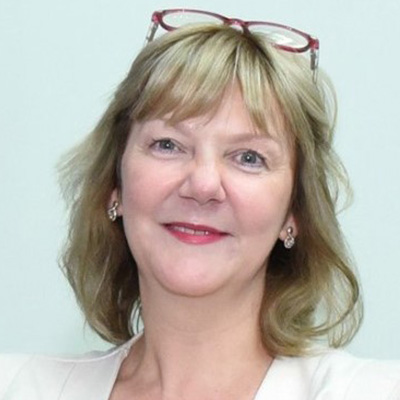
Professor Martina Hennessey
Professor Martina Hennessy is a clinical pharmacologist and consultant physician at St James’s Hospital Dublin with clinical expertise in hypertension, cardiovascular risk and medication safety and research interests in advanced therapies, antiretroviral pharmacology, and medical education.
She is the Director of the Wellcome-HRB Clinical Research Facility at St James’s, a collaborative partnership between the Hospital and Trinity College. As Director, she has led a three-fold increase in clinical research activity, integration with cancer clinical trials, commissioning of a state-of-the-art aseptic compounding unit for advanced therapies and increased access for patients to advanced gene and cellular therapies, early phase trials and complex interventions. The CRF has conducted over 300 clinical research studies and 100 regulated clinical trials over the last 7 years, including the first gene-therapy studies in Ireland for variants of haemophilia, SMA and ALS and more recently the first cellular therapy trial in Myeloma.
Prof Hennessy is Associate Professor of Medical Education and Director of Internship in the School of Medicine at TCD. In 2023 she was appointed as Chief Academic Officer for the Dublin Midlands Health Region which comprises 9 acute hospitals and serves a population of over 1 million people.

Dr Robert O’Connor
Robert O’Connor Ph.D. is Director of the HRB-funded National Clinical Trials Office, an organisation which facilitates growth in clinical research trials across Medicine and MedTech in Ireland. With over 25 years of experience in clinical trials, oncology, and translational health research, he serves and has served, on multiple national health and research boards.
Following his PhD, his Postdoctoral research took laboratory cancer research findings into early-stage clinical trials. He served as an executive chair at ICORG (now Cancer Trials Ireland), fostering connections between laboratory and clinical researchers. As a former lecturer at Dublin City University, he later became Director of Research for the Irish Cancer Society, where he successfully integrated research into national cancer treatment policy and developed patient partnership initiatives.
Throughout his career, Dr O’Connor has focused on bridging the gap between research and practical healthcare outcomes, while supporting health professionals in research activities.
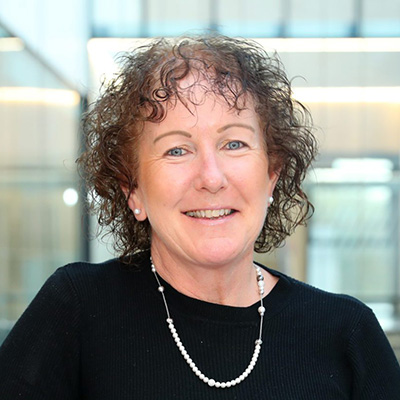
Professor Zena Moore
Professor Zena Moore is the Chair in Nursing at the RCSI, University of Medicine and Health Sciences, is Head of the School of Nursing & Midwifery and Director of the Skin Wounds, and Trauma (SWaT) Research Centre. Zena’s area of research interest is Wound Healing & Tissue Repair, and she has published over 350 articles, guidelines, consensus documents and book chapters in this field.
In 2022, Zena received a lifetime achievement award from the World Union of Wound Healing Societies. Zena is chair of the European Pressure Ulcer Advisory Panel, International Guideline Governance Group, is a Past President of the European Wound Management Association. Zena is an Adjunct Professor at Griffith University, Queensland, Australia, a Visiting Professor at Ulster University, an Honorary Visiting Professor at, Cardiff University, a Professor at Ghent University, an Honorary Professor at the Lida Institute China and an Adjunct Professor at Fakeeh College for Medical Sciences, Jeddah, KSA.
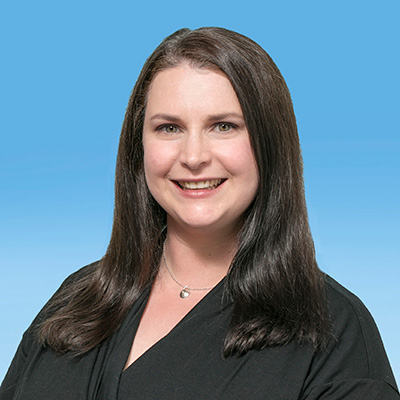
Dr Jane Bryant
Jane Bryant is a Programme Officer at the National Office for Research Ethics Committees, with primary responsibility for the NREC-CT. Jane is involved in the processes and procedures that underpin research ethics review, taking a lead role in the scientific assessment processes and coordination of the National Office procedures for EU submission portal, CTIS. Jane has developed detailed expertise in the regulatory aspects of research ethics review for clinical trials, including working with her European counterparts on the implementation and ongoing operation of the new Clinical Trials Regulation.
Prior to taking up her role at the National Office, Jane held two postdoctoral research positions in Chicago and Dublin, followed by lectureship and research grant management roles. Jane holds a BA (Mod) in Biochemistry with Immunology from Trinity College Dublin, and a PhD from Imperial College London.
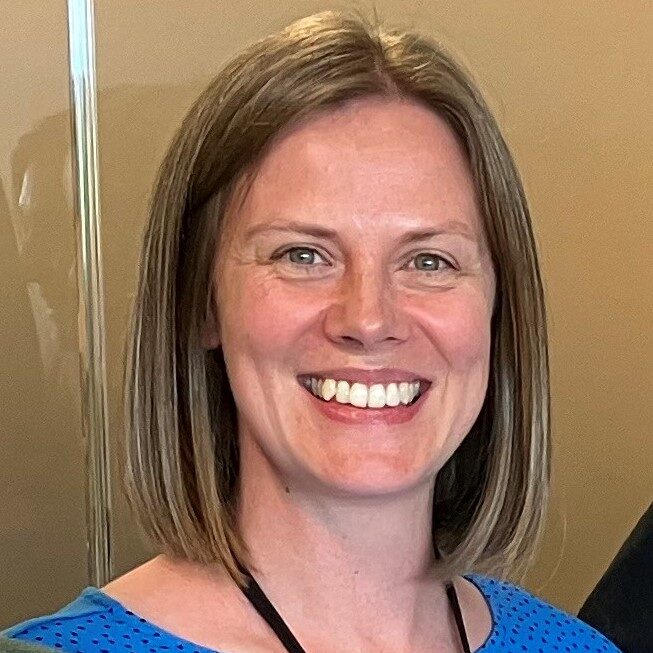
Claire Dickson
Claire Dickson is an Associate Director of Clinical Trial Regulatory Management at IQVIA and a registered member of TOPRA (The Organisation for Professionals in Regulatory Affairs). With a background as a biomedical scientist, Claire has 18 years of experience in the regulatory aspects of clinical trials in a CRO environment.
At IQVIA, Claire serves as a Subject Matter Expert (SME) on the EU Clinical Trials Regulation (EU CTR) and the Clinical Trial Information System (CTIS). She has played a pivotal role in implementing these within the organization to ensure that clinical trials are managed to the highest standards, contributing to the advancement of medical research and patient care.
Rare Diseases Panel
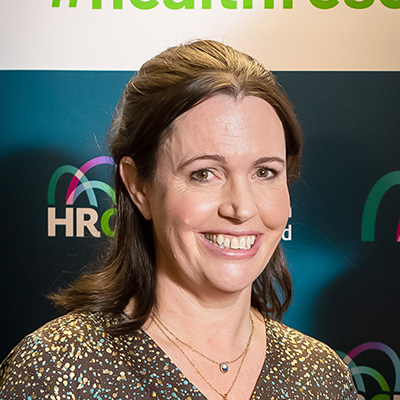
Dr Avril Keenan
Dr Avril Kennan serves as the CEO of Health Research Charities Ireland (HRCI), an organisation dedicated to supporting a thriving a community of more than 45 charities to engage in all aspects of health research, while also acting as their national advocate.
Under her leadership, HRCI runs the Irish Health Research Forum, bringing together all stakeholders to improve health research in Ireland. She also oversees HRCI’s management of the Joint Funding Scheme, in a partnership with the Health Research Board, which to date has funded over 150 research projects aligned with the missions of HRCI’s member charities. Avril plays a leading role nationally in PPI, research impact, health data, research funding, genomics and rare diseases.
Avril’s academic background includes a PhD in genetics and subsequent years working as a molecular biologist. In previous roles in DEBRA Ireland and DEBRA International, she drove a range of patient-centric global initiatives. She’s a passionate advocate for the transformative power of research to improve lives.

Associate Professor Suja Somanadhan
Dr. Suja Somanadhan is the Associate Dean for Global Engagement and an Associate Professor in children’s nursing at the UCD School of Nursing, Midwifery & Health Systems, University College Dublin. Her research centres on patient- and family-centred care, working closely with patients, families, clinicians, and policymakers to integrate their priorities into research that influences healthcare policy and practice. Honoured as a Fulbright Health Impact Scholar in 2019 and listed in the Hospital Professional Top 100 in 2023, Dr Somanadhan’s work has also earned her the International Family Nursing Innovation Award in 2023. She leads interdisciplinary research on child and family health, focusing on rare diseases and complex medical conditions, and is the founder of the Rare Disease Research Partnership (RAINDRoP) in Ireland. Additionally, she serves as co-lead for the All-Ireland Rare Disease Interdisciplinary Network (RAIN). She contributes to the National Consortium for Rare Diseases Research in Ireland (RDCat) and the European Rare Disease Research Alliance (ERDERA).
Dr Arit Awan

Shirley Bracken, RCN, RGN
Shirley qualified as a RGN in 2001 at DCU and worked in the neurosciences directorate at Beaumont Hospital while undertaking her H Dip Neurosciences Nursing and BSc Nursing Management studies. Shirley completed her post grad children’s nursing training in 2007 in DCU and CHI at Temple Street before joining the team in Paediatric ICU for four years. Shirley joined the Craniofacial Team in 2011 as a Craniofacial Nurse Specialist and moved into a Research Assistant role with her team in 2018. In her current role of Craniofacial Projects Manager (part-time) Shirley is responsible for the facilitation and coordination of research and clinical audit alongside supporting the team in quality improvement initiatives and standards.
Since 2021 Shirley also works in the Nephrology Department (part-time) where she supports five renal registries including those for rare renal conditions and renal transplantation. Shirley also has experience of working on Neuromuscular Clinical Trials Research in Patients with Duchenne Muscular Dystrophy.
Patient Advocate
Poster Presentations
Refining the choosing health infant feeding for infant health intervention and implementation strategy: Re-CHErIsH
Eibhlín Looney, Moira Duffy, Helen Ahern Galvin, Molly Byrne, Rebecca Golley, Catherine Hayes, Tony Heffernan, Aisling Jennings, Brittany Johnson, Patricia Kearney, Colette Kelly, Patricia Leahy-Warren, Marian McBride, Sheena McHugh, Kate O’Neill, Sarah Redsell, Anna Lene Seidler, Elaine Toomey, Karen Matvienko-Sikar
Title: Refining the choosing health infant feeding for infant health intervention and implementation strategy: Re-CHErIsH
Authors: Eibhlín Looney, Moira Duffy, Helen Ahern Galvin, Molly Byrne, Rebecca Golley, Catherine Hayes, Tony Heffernan, Aisling Jennings, Brittany Johnson, Patricia Kearney, Colette Kelly, Patricia Leahy-Warren, Marian McBride, Sheena McHugh, Kate O’Neill, Sarah Redsell, Anna Lene Seidler, Elaine Toomey, Karen Matvienko-Sikar
Presenter: Eibhlin Looney, Research Assistant, School of Public Health, University College Cork.
Background: Childhood obesity is a significant public health challenge. Healthcare professionals (HCPs) are well placed to support and inform caregivers around early infant feeding. The Choosing Healthy Eating for Infant Health (CHErIsH) intervention was developed to be delivered by HCPs at primary care childhood vaccination visits, to support healthy infant feeding practices and to prevent childhood obesity. A feasibility study identified challenges and areas for refinement of the intervention and trial processes. The current project aims to refine delivery of the CHErIsH intervention and trial processes.
Methods: This study uses a mixed-methods approach, conducted in three phases. In Phase 1, potential refinements to the CHErIsH intervention delivery and trial processes were developed from a review of the feasibility study findings and input from the multidisciplinary team. An online mixed-methods survey to evaluate caregiver attitudes about the proposed refinements will be conducted in Phase 2. Participants will be pregnant women, their partners, and/or parents/primary caregivers of infants up to 2-years of age, based in Ireland. In Phase 3 a stakeholder consensus meeting with HCPs, researchers, policymakers, and caregivers, will be conducted, using the nominal group technique, to agree the refined intervention and trial processes.
Results: This research is ongoing, results of Phases 1 and 2 will be presented at conference.
How do parents want to provide information in Child Health Research Studies
Moira Duffy(1), Eibhlin Looney(1), Dimity Dutch(2), Brittany Johnson(2), Laoise Kelly(1), Lucy Porter(3), Sarah Redsell(3), Karen Matvienko-Sikar(1)
(1) School of Public Health, University College Cork, Cork, County Cork, Ireland
(2) Flinders University, Adelaide, South Australia, Australia
(3) University of Nottingham, Nottingham, England, UK
Presenter: Moira Duffy, Research Assistant, University College Cork
Introduction: Healthcare professionals, including research nurses and midwives, play an important role in collecting information in child health research. Little is known about parents and caregivers’ preferences for how, where, when, and with whom information is collected in child health research, however. Examining parents’ perspectives and preferences about the outcome measurement instruments (OMIs) used to collect information in child health research can improve the quantity and quality of data collected in child health research.
Aim: The aim of this project is to examine what characteristics of OMIs are important in parents/caregivers’ decisions to engage with and participate in trials of interventions to prevent childhood illness and/or improve child health outcomes.
Methods: An online cross-sectional survey is being conducted. Recruitment began July 2024 and anticipated completion is October 2024. This survey examines what types of OMIs parents/caregivers would be most comfortable using to provide data in child health research. It also examines parents/caregivers’ preferences for where, how, when, and with whom data is collected in child health research. Data will be analysed using descriptive statistics.
Results: The data for this study is still being collected; findings from all participants will be presented at the conference. Future child health studies need to consider the preferences of parents/caregivers as indicated in this study when designing and conducting research to improve the research experience and enhance engagement in child health studies among children and their parents/caregivers. These findings will inform how nurses, midwives, and other healthcare professionals collect data in future child health research.
The integral role of the research nurse in managing a multi-site paediatric allergy clinical trial in Children’s Health Ireland
Ruth Franklin, Christine Lambert, Mary Costello, Aisling Geraghty, Deirdre Gallagher, Professor Jonathan Hourihane.
Presenters: Ruth Franklin and Christine Lambert, Research Nurses, Research and Innovation Department, Children’s Health Ireland, Dublin, Ireland
Background: The prevalence of allergic disease is increasing globally, with approximately 10% of children and young adults in Ireland affected. Research in this field is thriving, with immunotherapy emerging as a key treatment. However, despite the advancements being made, the execution of clinical trials within the busy hospital environment presents with a range of challenges.
Methods: In 2023, an allergy research team was established at the Clinical Research Centre in Children’s Health Ireland (CHI) to conduct a paediatric immunotherapy clinical trial. The team included a Principal Investigator, three research nurses, a research fellow, and four sub-investigator consultants. The trial was conducted at two Dublin sites: CHI Crumlin and CHI Connolly, marking CHI’s first cross-site allergy trial.
Results: The research nursing team played an integral role in this collaboration. They managed trial logistics, coordinating participant visits and facilitated effective communication and workflow. Implementing a model of weekly team meetings, increasing to twice weekly during intensive recruitment, maximised cross-site participation. By establishing a clear and precise foundation of policies, protocol procedures and timelines, the nurse created a structured environment which improved adherence to study protocols. They also served as the primary contact for families, coordinating consultations and follow-ups, which fostered engagement and satisfaction. Their ability to anticipate needs and troubleshoot issues, significantly contributed to patient retention.
Conclusion: The research nurses were pivotal in the success of recruitment to a paediatric allergy clinical trial. Their specialised skills and commitment, alongside a highly qualified and dedicated team of Allergy consultants, not only drove high participant recruitment but also established CHI as a promising hub for future allergy research.
Building Research Capacity: a pathway for developing the experienced Clinical Research Nurse in Children's Health Ireland
Deirdre Gallagher, CNM3, Research and Innovation, Children's Health Ireland
Background: Building capacity for research requires having an agile and competent research nursing workforce available to facilitate the roll out of new trials in a timely manner. In Children’s Health Ireland, recruiting experienced paediatric clinical research nurses at the CNM2 level has been a challenge for some time. To build our capacity to increase the numbers of trials running and widen patient access to these trials, a solution to this problem is needed.
Methods: Our approach to managing this challenge is to increase our investment in our CNM1’s, who typically on-board with significant paediatric nursing experience, but little to no research nursing experience. We aim to invest in these nurses’ development over the first two years of their CNM1 career to enable them to be suitably skilled and experienced to apply for open CNM2 roles when they meet the minimum experience requirements of that role.
Findings: We do this by linking them with an experienced CNM2 for mentoring and support early in their orientation, assigning to them to a variety of types of research studies, including, where possible CTIMPS or CI’s of medical devices as well as non-regulated research, ensuring all new CNM1’s undertake the RCSI Clinical Research Coordination module and encouraging and supporting access to relevant clinical and managerial courses such as the HSE NCLC Leadership Programme.
Conclusion: It is hoped that this approach will pay dividends in years to come as we see our existing CNM1’s develop into experienced CNM2’s and view this role as a viable long term career option.
Navigating Transition: Challenges of Merging Paediatric Hospitals and Relocating Clinical Research Facilities at Children's Health Ireland
Aisling Geraghty, Deirdre Gallagher, Research Operations Manager, CNM3 Children's Health Ireland
Background: In 2026, a new national paediatric hospital Children’s Health Ireland (CHI) will open in Dublin, marking the merger of three paediatric hospitals. Preparation towards the move has been ongoing for 5 years, including the opening of 2 satellite Urgent Care Centres and development of new cross-site clinical research infrastructure. The organisation is undergoing major clinical and operational transformation with commissioning in progress, including introduction of an Electronic Health Record.
Methods: As part of this, the CHI Clinical Research Centre (CHI-CRC) has been setup to support and drive the ongoing delivery of clinical trials and other complex studies across sites. The CHI-CRC is linked closely with the Cancer Trials Unit. Both research facilities are now planning for relocation to the new site.
Findings: With over 100 trials and research studies and over 60 staff members, managing the transition alongside the parallel transfer of clinical care presents complex challenges. Not least, ensuring uninterrupted trial conduct for active participants and relocating sensitive research documentation are significant logistical hurdles. Maintaining patient safety and regulatory compliance throughout is paramount for the protection of participant rights and upholding research integrity.
Conclusion: Addressing these challenges requires a multifaceted approach. Comprehensive planning, including risk assessment and mitigation, is essential for a smooth transition while minimising disruptions to ongoing research. Strategies like regular cross-site meetings and town hall-style Q&As keep staff informed and engaged, facilitating open dialogue and addressing concerns promptly. Hospital-wide stakeholder engagement for commissioning of the new hospital is critical to ensure future integration of research with clinical care.
Building Research Capacity within the National Centre for Paediatric Rheumatology in CHI - establishing a paediatric site for a rheumatology biobank
Breda Kane, Emma O' Brien, Joana Campos
Presenter: Breda Kane, Research Nurse, Children’s Health Ireland
Background: In 2021, the Rheumatology department in CHI at Crumlin approached the Research and Innovation Office regarding support for a Biobank that they had been asked to participate in. The Rheumatology department had not been involved with running studies with RIO previously. They needed assistance in the co-ordination and running of the Biobank and that is where the research nurses became involved.
Methods: This was achieved by supporting the rheumatology team in their GCP and study training. A monthly research meeting was set up, to update the team on the status of the Biobank, identify and address any issues. In these meetings, we also discussed other studies they were interested in getting involved in. The research nurse recruited patients from the Rheumatology outpatients’ clinics, with study visits carried out in various areas within hospital e.g. Outpatient department, Medical/Surgical day unit and phlebotomy.
Results: The Biobank reached their recruitment target in March 2024, with study visits ongoing. The Rheumatology department has a clinical trial currently open, recruiting patients and are in the process of setting up other studies.
Conclusion: By the research nurse encouraging and assisting in the development of research within a department, they allowed for new options and hope to be given to their patients. Furthermore, by being present in everyday areas of the hospital, it brings a greater awareness to research by explaining to staff who we are and what we do. It also allows the research nurse to encourage others to engage in research.
Undergraduate Student Nurse Placements in the Clinical Research Support Unit
Elaine Conway, Siobhan Egan, Sandra Nantumbwe, Lorraine O'Connell
Presenter: Elaine Conway, CNM2, Clinical Research Support Unit (CRSU)
Background: Clinical trials are a fundamental component of high-quality care and improving patient outcomes (Department of Health, 2024). The Health Research Board (HRB) recognised that research nurses and midwives are a critical component in the day-to-day running of clinical trials (HRB, 2022). By exposing student nurses to research during their undergraduate programme this gives them the opportunity to pursue this field of nursing once qualified and thus strengthening the number of qualified research nurses and midwives in Ireland.
Methods: The Clinical Research Support Unit (CRSU) is one of only two sites in Ireland to offer undergraduate student nurse placements within a clinical research facility. In March 2024, the CRSU welcomed its first cohort of third-year BSc General Nursing students from the University of Limerick’s Department of Nursing and Midwifery.
Findings: Prior to their placements, preceptors underwent training to ensure a supportive learning environment. During their two-week placement, students were immersed in clinical research, engaging in a structured timetable that included an introduction to the CRSU, meeting teams, and an overview of ICH GCP guidelines. They also had the opportunity to visit the Cancer Clinical Trial Unit, where they observed participant visits and interacted with the Vascular Research CNM2.
Conclusion: The feedback from this placement has been overwhelmingly positive, highlighting the value of such experiences for both students and staff. We look forward to welcoming more students in November, further enriching the learning opportunities within clinical research.
Navigating the Transition: Challenges and Strategies for Oncology Research Nurses Shifting from Drug Trials to Medical Device Trials
Oliva Forde, Grainne McDonnell, Alyssa Dela Paz
Presenter: Olivia Forde/Grainne McDonnell, Research Nurses, Galway University Hospital
Background: When clinical research at a site expands from primarily drug trials to medical device trials Research nurses face unique challenges that impact trial integrity, patient safety, and nursing practice. This clinical case study presents the experience of Oncology Research Nurses at Galway University Hospital transitioning from Oncology drug trials to their first medical device trial, the Microwave Breast Imaging system (Wavelia). The device trial aimed to assess the detectability and sizing of invasive breast cancers, benign breast lesions, and differentiation between malignant and benign lesions.
Aims:
Key challenges included: Knowledge Gaps in the understanding regarding device-specific technical requirements, Increased Complexity in Patient Education and the Need for New Adverse Event Reporting Protocols
Methods/Findings: Understanding and addressing differences in these types of trials proved crucial to the competent deliverance of trial. Regulatory compliance for medical device trials demanded more time and additional attention compared to previously dealt with pharmaceutical trials. This underscored the need for comprehensive support and training through this period of change. Enhanced training programs and increased resource allocation were identified as critical factors for supporting Research nurses during this transition.
Conclusion: This case description highlights the importance of recognizing the challenges of change. It emphasizes the importance of creating targeted training modules and providing continuous institutional support to ensure Research nurses are equipped to handle the complexities of transition to medical device trials. By addressing these challenges, healthcare institutions promote safe and seamless transitions, ensure rigor and accuracy of trials and ultimately facilitate patient access to cutting edge innovations and enhanced care options.
Defining the role of the Research Nurse and Midwife: An Initiative by the Irish Research Nurses and Midwives Network
Simone Walsh, Michelle Smyth, Derval Reidy, Sabina Mason, Carole Shilling, Pooja Varghese, Deirdre Hyland
Presenter: Simone Walsh, IRNM Chair and Programme Manager, RCSI University of Medicine and Health Sciences
Background: The Irish Research Nurses and Midwives Network (IRNM) was established in 2008 to provide education and advocacy for clinical research nurses and midwives (CRNM) on the island of Ireland. The IRNM are currently funded by the HRB to conduct a study focused on identifying the barriers and enablers to the recruitment and retention of CRNMs on the island of Ireland. A stakeholder engagement exercise revealed 90% of stakeholders and 80% of nurses and midwives did not understand the role of the CRNM, often confusing it with that of nurse researchers. To address this, the IRNM embarked on a mission to review and redefine the role of the CRNM, aiming to enhance understanding and recognition of their critical contributions.
Methods: A workshop was held with IRNM members to review definitions from Ireland, UK, Australia, and the US. The definition was analysed under themes including: Evolving Scope of Practice, Recognition and Professional Identity, Training and Education, Regulatory Requirements, Interdisciplinary Collaboration, Patient Safety and Ethical Considerations and Advocacy and Policy Making. A new definition was developed, emphasizing patient-centred responsibilities. This definition was circulated to four national stakeholders for feedback and reviewed by 15 nurses to assess their understanding.
Results: The redefined role clarified the distinct responsibilities and impact of CRNMs, highlighting their contribution to patient care and research. Stakeholder feedback indicated increased understanding and recognition of the professional identity and scope of practice of research nurses and midwives.
Conclusions: The role of research nurse and midwife is widely misunderstood and often confused with that of nurse researchers. The IRNM must continue to disseminate the redefined role to stakeholders. This ongoing effort is crucial to ensuring that national stakeholders, including the Department of Health, and the next generation of nurses and midwives recognises and understands the vital work performed by research nurses and midwives.
The Implementation of Student Nurse Placements in the Clinical Research Facility - University College Cork
Emma Cobbe, Maeve Kelsey, June Considine, Niamh Kelly and Ciaran Evans
Presenter: Emma Cobbe, Clinical Research Nurse, Clinical Research Facility – University College Cork
Background: Clinical Research Nursing has traditionally been a niche specialty; however, it is emerging that Student Nurse Placements in the Clinical Research Setting have the capacity to benefit both student nurse, the host institution and the clinical research team. We plan to outline how we have introduced clinical research as a core undergraduate general nursing placement within University College Cork.
Methods/Findings: An introduction summarizes the opportunities that this placement can afford to student nurses. It has the potential to enrich their understanding of evidence-based practice through the research process and equip them with transferable skills that will enhance and contribute to their nursing practice. Our aim was to implement a strategy for clinical placements in the CRF-UCC for UCC Student Nurses. We discuss the methods we used to make this happen and our collaboration with the School of Nursing UCC during the set up. The learning outcomes of the student were a core focus in the development of the placement timetable. Evaluation will be presented with conclusion and recommendations for future plans in this domain.
Conclusion: By participating in clinical research, student nurses contribute to advancements in healthcare, which can ultimately improve patient outcomes. This new area of learning will allow students to explore different areas of nursing and research, helping them make informed career choices.
Collaboration of the research nurse coordinator in the intensive care unit (ICU) of Cork University Hospital (CUH) with the Clinical Research Facility - University College Cork (CRF-UCC).
Loraine O'Neill and Joanna Cleary
Presenter: Loraine O’Neill, Research Nurse Coordinator, Cork University Hospital
Background: The Research Nurse Coordinator post commenced in February 2022. The CRF-UCC collaborated with the ICU to set up clinical trials on the unit. The EpoTrauma Trial commenced in 2022. The collaboration between the Research Nurse Coordinator and the CRF-UCC is essential for the integration of clinical research into ICU practices. When research is incorporated to ICUs this can significantly impact patient outcomes.
Methods: The collaboration included training by the CRF-UCC for the Research Nurse Coordinator in the setting up of clinical trials. Good Clinical Practice training, support, guidance and education. Challenges include resource limitations and the need for ongoing education and training. Regular meetings, training sessions and patient identification and enrolment onto clinical trials within the intensive care unit. Institutional support from Cork University Hospital ICU and CRF-UCC in the setting up of trials. Ensuring compliance with regulatory requirements and ethical requirements.
Results: Effective communication between the Research Nurse Coordinator and CRF-UCC. Collaboration in relation to study protocols, patient recruitment, ongoing education and training. Successful set up of the EpoTrauma trial in the ICU which recruited the first patient in Ireland. Currently setting up the GenOMICC and MegaROX trials within the ICU.
Conclusion: The collaboration between the Research Nurse Coordinator and CRF-UCC is crucial for advancing clinical research in CUH, ICU. By effective communication and identifying challenges the research nurse coordinator can enhance research participation and contribute to improved patient care. Identifying the importance of having a Research Nurse Coordinator working in the Intensive Care Unit supporting all staff and all members of the multidisciplinary team.
Conference Funding and Sponsorship

Roche
Roche Position on Clinical Research As a research-focused global healthcare company, Roche aims to contribute to the quality of human life by providing pharmaceutical and diagnostics products and services for the prevention, screening, diagnosis, classification, prognosis, prediction, treatment and monitoring of diseases. Roche is committed to producing safe and effective medicines and diagnostics products and solutions that benefit patients and physicians by addressing unmet medical needs. To do this, the company makes use of the most recent advances in science and technology to understand the molecular basis of diseases and to identify and test novel medicines and diagnostics products and solutions. Clinical studies are an integral part of the process for developing new medicines. Before a new medicine can be made available, evidence of its safety and effectiveness must be shown in well-designed, well-controlled, and carefully monitored clinical studies in healthy volunteers and/or patients who consent to participate. The same rules apply for the development of certain type of diagnostics products and solutions, where studies are not only conducted to demonstrate proof of technical performance and accuracy, but also their clinical evidence and value. Patients may choose to participate in clinical studies, hoping that their contributions will help in the development of new therapies for the condition affecting them. However, taking part in a clinical study raises questions for study participants and family members or caregivers. For example, patients want to know what risks a study entails, how the study will be conducted, and how their personal information will be safeguarded. Roche is committed to the ethical conduct of clinical trials and to providing information on the safety and effectiveness of its medicines and diagnostics products to patients, physicians, researchers, and health authorities in order to protect patient safety, inform medical decisions, and facilitate further research. Roche is committed to sharing information while protecting patients’ personal data.
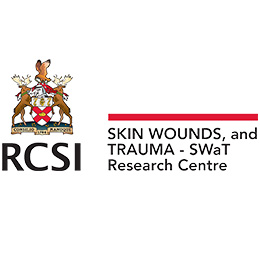
SWaT Research Centre
The Skin Wounds and Trauma (SWaT) Research Centre is a leader in wound healing and tissue repair, specializing in pressure ulcer prevention and management. Our mission is to transform cutting-edge research into practical clinical solutions that enhance healthcare outcomes.
SWaT collaborates with industry leaders to evaluate and clinically investigate novel wound care technologies, driving innovations to market. With a focus on cutting-edge solutions, the centre actively partners with industry to accelerate the development and commercialization of ground-breaking wound care devices.Our strong partnerships with clinical and academic institutions, as well as patients and advocacy groups, make us an ideal partner for companies focused on outcome-driven healthcare and translating research into practice. Through clinical partner collaborations we seek to develop evidence-based solutions that improve patient care and enhance clinical practice and outcomes. These partnerships foster research opportunities, improve hospital systems, and support staff professional development.
On the academic side, SWaT collaborates with specialists worldwide to advance wound care research, seeking partnerships that drive innovation and international collaboration.
Partnering with SWaT grants you access to leading experts in wounds and trauma, with extensive experience in regulated studies of innovative medical devices. We offer state-of-the-art clinical research infrastructure and a strong network of professionals in both clinical and academic fields. As a nurse-led Centre, we prioritize patient outcomes through large-scale studies, aimed at improving the quality of life for those affected by wounds. Our experience in tissue viability and wound management, combined with patient collaboration, propels our mission to improve prevention and treatment strategies.

Cornmarket
We are Cornmarket.
We’re the largest Public Sector financial services broker in Ireland. We have over 220,000 customers and for over 50 years we have been helping public sector employees with their financial needs. Everything from car, home, travel and health insurance to pensions and retirement planning, income protection and life insurance. We help public sector employees on their financial journey throughout each of life’s stages. We work with over 40 public sector unions, associations and employers to negotiate excellent value financial products on their behalf. We cover all of the insurance and financial needs of public sector employees.
We help the people who help everyone else.

IQVIA
IQVIA is a world leader in using data, technology, advanced analytics and human expertise to help customers drive healthcare – and human health – forward. Together with the companies we serve, we are enabling a more modern, more effective and more efficient healthcare system, and creating breakthrough solutions that transform business and patient outcomes.
IQVIA in Ireland support life science companies across the full product life cycle, from R&D through to commercialisation, and work with healthcare providers to enable them support their HSE patients and improve health outcomes.
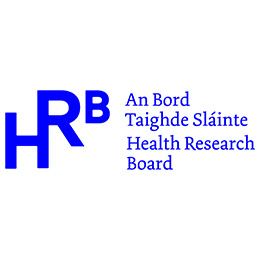
Health Research Board
The Health Research Board funds research and delivers evidence to advance health and social care with the aim of making a real difference to people’s lives.
We fund research projects and programmes in universities and hospitals to improve health and enhance patient care. We collaborate with a broad range of stakeholders to create a strong, supportive environment for health research in Ireland; building health research career paths and providing infrastructure to ensure innovative practices are developed and put into practice here in Ireland.
Through the establishment of the Secretariat for the Health Research Consent Declaration Committee in the HRB and National Office for Research Ethics Committees, we work to ensure that funding for health research is delivered to meet the highest standards of governance, quality and ethics.
Our Evidence Centre generates independent, credible evidence to inform decisions of policymakers, practitioners and the public across a range of health and social care topics.
And in addition to managing four national health information systems in the areas of disability, drugs and alcohol and inpatient psychiatric care, the HRB is at the forefront of promoting and enabling the use of data to shape health policy, enhance healthcare delivery and drive broader research and innovation initiatives.
Meet our sponsors and win a prize!
On registration you will receive a ‘sponsorship stamp card’. Visit our sponsor teams at their stands, who will stamp your card beside their logo. Once your card is full, submit at the registration desk before end of lunch, to be in with a chance to win some great prizes, including €100 One for All Voucher, €50 Peter Marks Voucher, L’Occatine Gift Set!
Important Information
Conference Registration:
-
Registration is open from 9-10am and is located at the entrance to the Board Room, 2nd Floor RCSI (Old Building) 123 St Stephens Green. Entrance via York Street. Look out for IRNM representatives in the lobby.
-
Please register and collect your goodie bag before 9.45am where possible, as the conference will commence at 10am sharp.
Oral Presenters:
-
Once registered, please make yourself known to the IRNM reps at the registration desk that you are an oral presenter. They will orientate you to the presentation podium, moving slides forward, timekeeping and session running order.
-
Oral Presenters for Session 1 and 2 are asked to be registered by 09.30am
-
Oral presenters for Sessions 3, 4 and 5 are asked to be registered no later than 13.35.
Poster Presenters:
-
Once registered, please go to the poster presentation area. An IRNM rep will direct you to your presentation board. Please hang your poster at your allocated board. Velcro for hanging your poster will be supplied. Remember your poster must be portrait and A0 size.
-
Your poster must but be in place by 08.45am sharp. If you are travelling, and will not make the 8.45am deadline, please feel free to send your poster in advance. Email hello@irnm.ie to arrange.
Getting There
The conference is in the College Hall and Board Room, 2nd Floor, RCSI University of Medicine and Health Sciences, 123 St. Stephen’s Green, Dublin 2, Ireland, DO2 YN77. Enter the College via the York Street Entrance.
LUAS:
The St Stephen’s Green stop on the Green Line and is located immediately across from RCSI. (3 minute walk)
DART:
Alight at Pearse Street Station and use google maps to walk to the RCSI. DO2 YN77 (20 minutes walk)
CAR:
Q-Park St Stephens Green, Glover’s Alley, Dublin, DO2 HCB1 (behind college) (3 minute walk)
